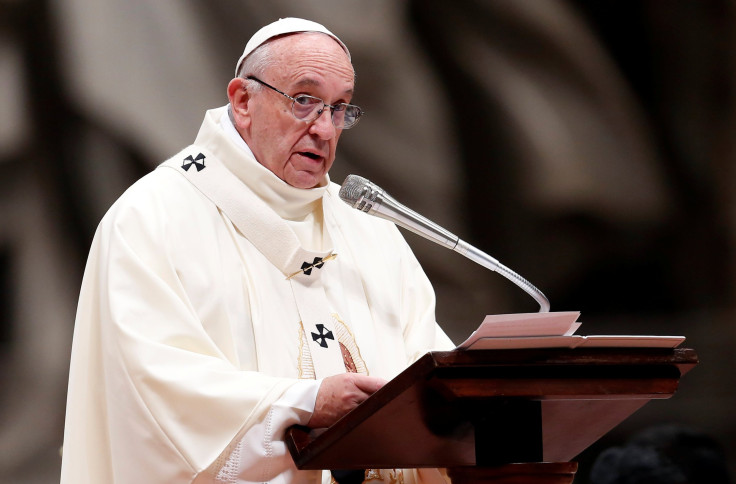Pope Francis’ Tolerance Toward Divorce, Remarriage Leading Church To ‘Gravely Critical Moment,’ Critics Warn

Pope Francis’ more liberal interpretation of Catholic Canon law is bringing him under increasing fire from conservative sections of the church for leading Catholicism toward what was dubbed last week a “gravely critical moment.”
Since being elected in 2013, Francis has been hailed for his more progressive views on a range of topics including homosexuality. But this has led to charges that his statements have bred confusion over doctrinal matters.
The latest blowback concerns his comments over the possibility of people who have divorced and remarried being admitted to the Eucharist, allowing them to receive Holy Communion. While divorce is permitted in the Church, those who divorce and remarry are said to be committing adultery.
However, in a document released earlier this year entitled "Amoris Laetitia," or The Joy of Love, Francis suggested that the issue wasn’t nearly so clear cut.
“It is possible that in an objective situation of sin – which may not be subjectively culpable, or fully such – a person can be living in God’s grace, can love and can also grow in the life of grace and charity, while receiving the Church’s help to this end,” read the document. A footnote then added: “In certain cases, this can include the help of the sacraments.”
The comments were met last month by a critical open letter from four cardinals, including American Raymond Burke, asking for clarification.
“We have noted a grave disorientation and great confusion of many faithful regarding extremely important matters for the life of the Church,” read the letter.
That then prompted a rebuke from other leading officials, including one who said the letter risked creating a “scandal” and a “schism” in the church.
But the four cardinals were backed up last week by 23 priests and scholars, who suggested that the Pope’s refusal to respond to the calls for clarification “may open him to the charge of negligence.”
“The universal Church is now entering a gravely critical moment in her history that shows alarming similarities with the great Arian crisis of the fourth century,” the letter went on.
“With the reigning Pontiff now sounding a very uncertain trumpet in this battle against the ‘principalities and powers’ of the Enemy, the barque of Peter is drifting perilously like a ship without a rudder, and indeed, shows symptoms of incipient disintegration.”
© Copyright IBTimes 2025. All rights reserved.





















